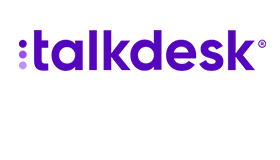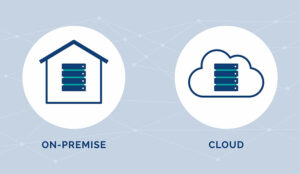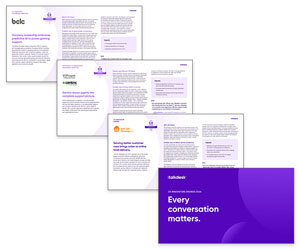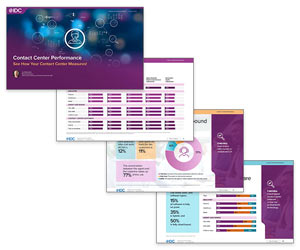Celia Cerdeira at Talkdesk offers a quick audit to assess whether an organization is ready to upgrade to a cloud contact centre and determine if the transition could future-proof its customer experience.
If long-term business success depends on keeping customers satisfied, building loyalty, or driving growth, delivering exceptional customer experiences is a priority.
Cloud contact centres offer distinct advantages over traditional on-premises setups, especially when it comes to meeting the demands of modern customers.
Fast, seamless support across multiple channels is now the norm, and cloud contact centres excel by offering greater flexibility, scalability, and advanced features that on-premises centres often struggle to match.
What Is a Cloud Contact Centre?
A cloud contact centre is a customer service solution hosted entirely in the cloud, enabling businesses to manage interactions across channels like phone, email, chat, and social media—without the need for on-site infrastructure.
Cloud contact centre software combines powerful tools to streamline operations and enhance customer service.
Features such as automatic call distribution (ACD) and interactive voice response (IVR) ensure customers are routed efficiently, while omnichannel capabilities create seamless experiences across multiple platforms.
AI plays a pivotal role by powering automated assistants, automating workflows, predicting customer behaviour, and analysing sentiment to refine interactions.
Cloud contact centres can also offer an improvement over on-premises models by eliminating costly hardware, simplifying maintenance, and supporting rapid scaling.
With automatic software updates and built-in security, the cloud model keeps businesses compliant and up to date. This approach offers the agility to adapt quickly to changing customer needs, making it a smarter, more adaptive solution for modern organizations.
Is It Time for a Cloud Contact Centre?
Wondering if it’s time to upgrade your customer support solution? If any of the below sounds familiar, it might be the right moment to switch to a cloud contact centre.
Limited Scalability
One of the most significant advantages of a cloud contact centre is the ability to scale effortlessly. Whether call volumes spike during peak seasons or slow down during quieter periods, a cloud-based model allows organizations to adjust their customer support operations on demand.
Businesses can quickly add more agents, roll out new communication channels, or expand service hours when needed – without worrying about costly hardware upgrades or physical space constraints.
When things slow down, scaling back is just as easy. Organizations can reduce resources without the hassle of maintaining idle infrastructure, ensuring they stay cost-efficient all year.
With this level of scalability, companies can adapt to changing needs in real time, keeping their customer experience smooth and consistent, no matter the circumstances.
Data Security Concerns
Data security is a critical goal for any organization, especially in highly regulated industries like healthcare and finance, where sensitive information must be protected to maintain trust and meet compliance standards such as HIPAA or GDPR.
A breach in these sectors can result in hefty fines, legal issues, and lasting reputational damage, making security non-negotiable.
Cloud contact centres offer protection by providing features like encryption, multi-factor authentication, and automatic security updates.
With cloud providers handling compliance and security maintenance, businesses can reduce risks while staying up to date.
Unlike outdated legacy systems or direct customer contact approaches, which leave room for vulnerabilities, cloud contact centres ensure that every interaction happens within a secure, compliant environment – giving businesses and their customers peace of mind.
Poor Customer Experience
Customer service plays a key role in shaping the overall customer experience, which directly impacts long-term business success.
A positive experience builds trust and loyalty while encouraging repeat business and referrals. Today, if companies fail to meet rising customer expectations, they risk losing customers to competitors that offer smoother, more personalized interactions.
Businesses should aim at delivering hyper-personalization—tailoring interactions to individual preferences and past behaviours.
AI-powered contact centres make this possible by using data to predict customer needs, route inquiries efficiently, and provide self-service options through chatbots.
Other improvements include offering seamless support across multiple channels, minimizing wait times, and gathering feedback through surveys to address pain points proactively. AI-driven solutions deliver faster, more meaningful interactions that keep customers satisfied and engaged.
Inadequate Integrations With Current Tools
For any business, connecting customer service solutions with other operational tools is essential to measure performance, streamline processes, and drive continuous improvement.
Without seamless integrations, valuable insights can slip through the cracks, leading to inefficiencies and missed opportunities.
A cloud contact centre simplifies this by easily integrating with popular communication tools like Slack and Microsoft Teams, as well as CRM platforms such as Salesforce and Zendesk.
These integrations create a connected ecosystem of digital tools, enabling businesses to align efforts across departments.
For example, sales and customer service teams can link customer leads directly to service interactions, tracking their impact on customer satisfaction, retention, and revenue.
This unified approach allows businesses to monitor performance in real time, attribute outcomes across platforms, and make data-driven decisions that enhance operations.
Lack of Real-Time Data
Real-time data is crucial for informed contact centres, offering immediate insights into customer behaviours, preferences, and interactions.
With AI-powered tools, businesses can instantly analyse customer experience metrics – such as satisfaction scores, Net Promoter Score (NPS), and sentiment analysis – to predict needs and deliver hyper-personalized solutions.
Access to real-time data improves customer satisfaction and helps companies proactively address issues before they escalate.
Equally important is tracking agent performance in real time. AI-driven analytics monitor key metrics like resolution times, call quality, and workload distribution, helping managers identify areas for improvement and provide targeted coaching.
By optimizing workloads and recognizing top performers, businesses can build a more efficient and motivated team.
What Are the Benefits of a Cloud Contact Centre?
A cloud contact centre offers several important advantages that can transform customer service operations. Here are some key benefits:
- Faster deployment and implementation: Cloud solutions come with ready-to-go packages that can have a contact centre operational in just days, unlike on-premises setups that take weeks or months.
- Greater security: Companies can protect sensitive data in private clouds while storing less critical data in public clouds, achieving the ideal balance between security and accessibility.
- Flexibility and scalability: Cloud platforms allow businesses to expand quickly to handle seasonal or event-driven spikes in demand without operational disruptions.
- Ease of managing remote agents: Cloud solutions support a global workforce by enabling companies to hire and manage remote agents, ensuring 24/7 service without additional overhead.
- Standardization of global service: A cloud-hosted platform simplifies the implementation of quality assurance processes, helping maintain consistent service standards across all locations and teams.
These benefits highlight the power of cloud contact centres to improve efficiency, security, and scalability, ensuring companies are set up for long-term success.
Take Your Contact Centre to the Cloud
Whether moving from an on-premise system, upgrading a legacy solution, or implementing a contact centre platform for the first time, the cloud offers the flexibility, security, and efficiency required to meet modern customer expectations.
This blog post has been re-published by kind permission of Talkdesk – View the Original Article
For more information about Talkdesk - visit the Talkdesk Website
Call Centre Helper is not responsible for the content of these guest blog posts. The opinions expressed in this article are those of the author, and do not necessarily reflect those of Call Centre Helper.
Author: Talkdesk
Reviewed by: Megan Jones
Published On: 13th Jan 2025
Read more about - Guest Blogs, Celia Cerdeira, Talkdesk






 Talkdesk is a global customer experience leader for customer-obsessed companies. Our contact center solution provides a better way for businesses and customers to engage with one another.
Talkdesk is a global customer experience leader for customer-obsessed companies. Our contact center solution provides a better way for businesses and customers to engage with one another. 












